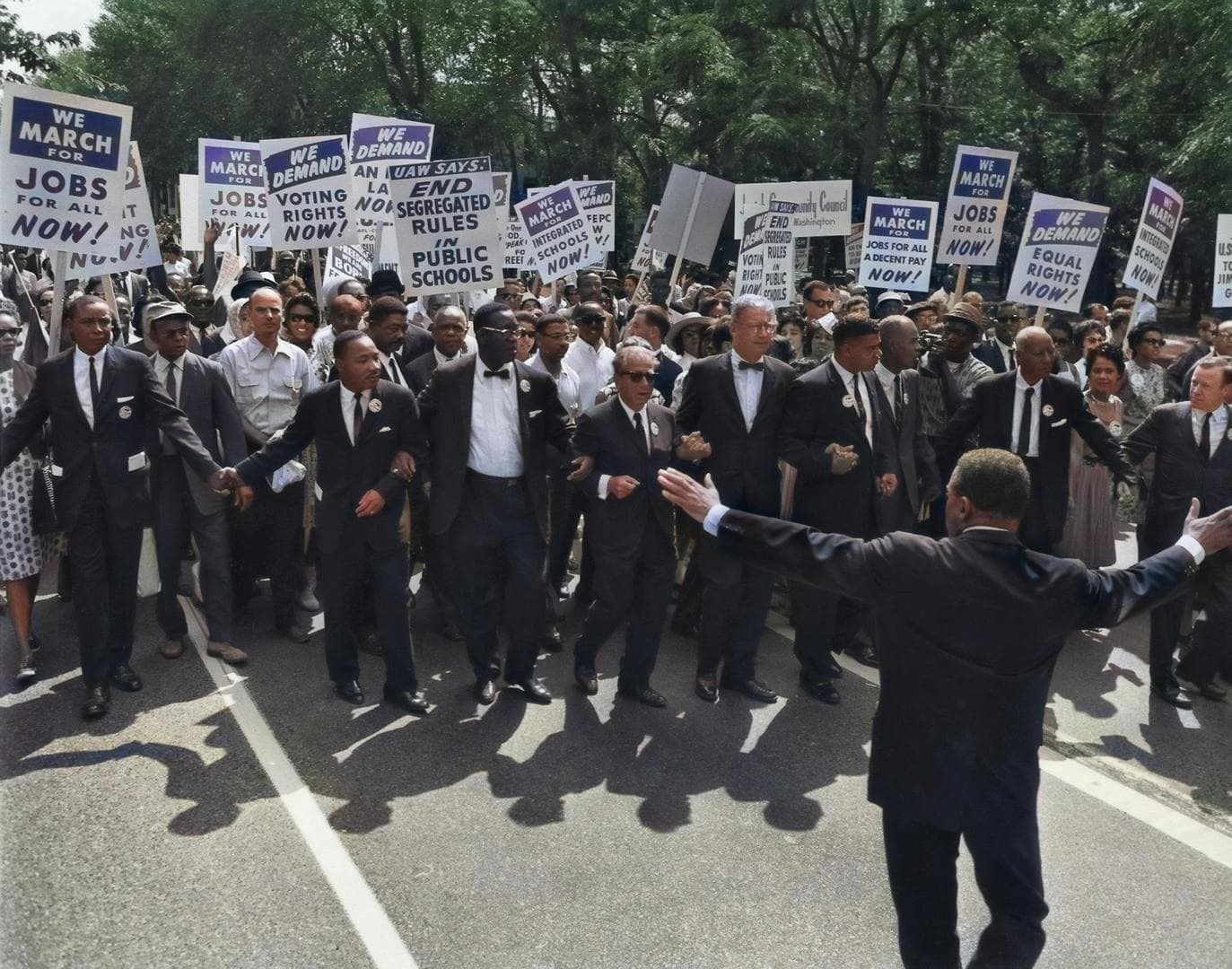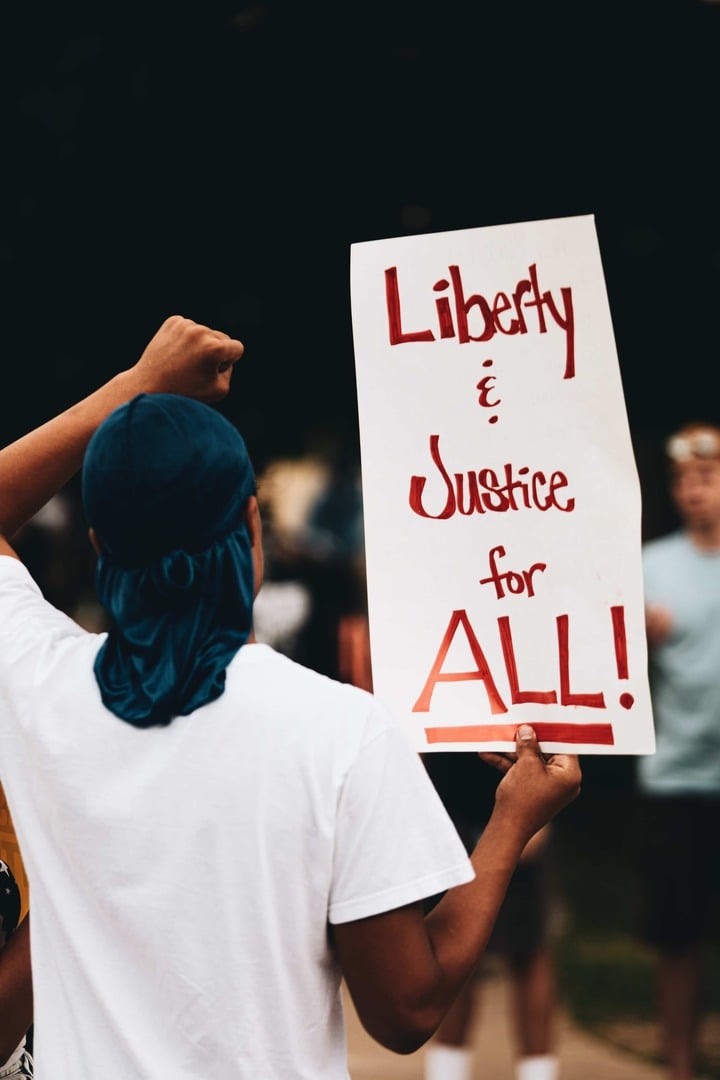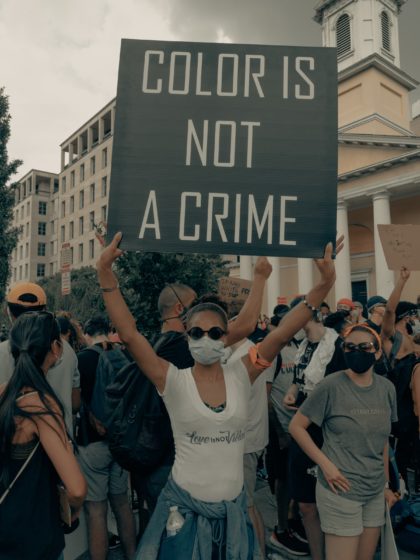CNN’s Wolf Blitzer made a huge mistake in reporting on the 2015 protests in Baltimore after Freddie Gray’s death while Gray was in police custody. And it is the same mistake many white people are making five years later with the protests after the murder of George Floyd when a police officer knelt down on his throat for more than eight minutes.
That mistake is corrupting Martin Luther King Jr.’s message of nonviolence.
If white people really want to be part of the solution, then we need to stop condemning black violence. We need to listen to the pain behind these protests.
During the Baltimore protests in 2015, Blitzer interviewed Deray McKesson, an educator and community activist. McKesson began the interview talking about his hopes for a peaceful protest, but apparently Blitzer didn’t believe him. Blitzer pushed McKesson to condemn the violent protests and then Blitzer made the mistake:
…I just want to hear you say that there should be peaceful protests, not violent protests, in the tradition of Dr. Martin Luther King Jr.

I love Martin Luther King Jr. I wrote my master’s thesis on his approach to nonviolence. King is the greatest prophet in the history of the United States. And white people should know him better.
Blitzer, like so many of us white people, doesn’t know Martin Luther King Jr. He misses King’s point and in doing so, he whitewashes King’s message.
The Olive
Branch
Take A Breath with Us
Our weekly newsletter creates a space to take a breath. Once we slow down, we can see the way desire, imitation, and conflict operate in our lives and in the world, and begin to create peace. In addition to the newsletter, you will receive the free "Unlearn the Bible" ebook when you subscribe.

If white people quote King’s radical commitment to nonviolence in order to condemn these riots, then we damn well better consistently quote King’s prophetic voice when it comes to the unjust racist structures that underly the riots. If white people quote King on nonviolence, we damn well better work with our black siblings in the struggle against the violent systemic racism that King spent his life fighting against – the systems that lead to poverty, poor education, police brutality, the military-industrial complex, mass incarceration, horrendous housing, high unemployment, lack of health care, and barriers to the right to vote.
And here’s the thing: once we start working with our black siblings for a more just world, we will stop using King’s words against our black siblings because we will realize how deeply paternalistic it is for a white person, who doesn’t have to deal with racist structures every day of our lives, to use King’s words in that manner.
As a white person who has no knee on my neck, it feels very self-righteous to say, “Yes, I see that knee on your neck. Yes, it’s been there for four hundred years. Yes, it’s about to kill you. But Martin Luther King Jr. told you to stay nonviolent.”
Here’s the point: White people need to stop using Martin Luther King Jr. to condemn black violence. Instead, we need to use Martin Luther King Jr. to condemn our own conscious or unconscious participation in racist structures.
When white people condemn black violence and riots, we participate in America’s long history of scapegoating black people. In conscious and unconscious ways, American culture trains white people to think that black people are the problem, when in fact, American culture is rooted in a violent system of oppression against black folks that leads to the benefit of white folks. From the beginning, white people have gained privilege and power by relegating black people to the margins. Sure, we did away with slavery 150 years ago, but the Civil War did nothing to end racism and racist policy that still infect our political, economic, and judicial systems.
Blitzer’s mistake was to use the protests as an opportunity to blame those who suffer from racial injustice. What he should have done, and what all white people should do, is use this opportunity to confront our own participation in systems of injustice.
But Blitzer won’t do that and neither will many white people. Why? Because we benefit from racism so much that we deny it even exists. Actually, it’s worse than that. Our white skin blinds many of us from the racism that permeates our culture. We claim to be color-blind, using empty phrases like, “I don’t see color,” which allows us to ignore systemic racism.
Yes, we do see color. And as long as black people are relegated to the inner city where they continue to suffer from political and economic systems that are stacked against them, we’ll be happy. Why? Because if they suffer from injustice, it means we won’t have to.
White America loves to quote King when it comes to nonviolence, especially when we can use King to critique black violence. But white America rarely quotes King when it comes to white power that leads to injustice.
And so many white liberals and conservatives will continue to condemn the riots, which conveniently allows us to avoid the real problems of underlying racial injustice. But as King repeatedly taught us, the problem is the violent systems of oppression that continue to infect this country and treat black people as less than human.

If white people really want to be part of the solution, then we need to stop condemning black violence. We need to listen to the pain behind these protests. As King stated, “A riot is the language of the unheard.” White folks need to listen to the pain behind the language of a riot. Instead of condemning riots, we need to condemn our own blind participation in systems of injustice, including, the American military-industrial complex, economic exploitation that’s rigged by and for the ultra-rich, and our racist for-profit prison system. We need to open our eyes. And the best way to open our eyes is to listen to our black and brown siblings and join them in the work for justice.
